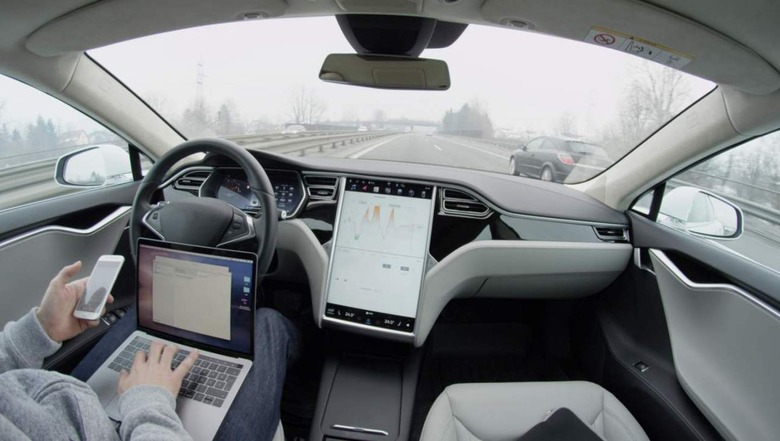Tesla Recall Hits Over 50k Cars To Remove A FSD Feature
The streak of bad luck continues for Tesla, this time forcing the manufacturer to recall nearly 54,000 vehicles. The affected cars all support Tesla's Full Self-Driving feature, and it's this exact software that poses a safety risk and, as a result, makes the vehicles unsuitable. According to Reuters, the recalled cars did not come to a complete stop at some intersections while in self-driving mode.
The issues can be traced back to a feature referred to as "rolling stop." The functionality was added to Tesla's self-driving cars in October 2021, and just a few months later on February 1, 2022, the company is forced to disable this feature. The National Highway Traffic Safety Administration (NHTSA) has announced that Tesla will turn off the "rolling stop" in an upcoming firmware update which will be automatically distributed to the owners of affected cars.
"Rolling stop" allows Tesla vehicles to go through intersections with all-way stop signs. It can only be applied when no other vehicles, objects, and pedestrians are present, and it only kicks in when the car is driving at no more than 5.6mph/9km/h. According to the NHTSA, the short-lived feature poses a safety risk and actually violates state laws which require cars to come to a complete stop.
Tesla is testing its self-driving vehicles
Although having to recall up to 54,000 vehicles sounds pretty bad for Tesla, this is not the first time the company is hit by such a large recall. In fact, just recently, Tesla was forced to recall almost half a million electric vehicles due to safety risks.
The NHTSA has Tesla on its radar for a number of other potential issues, including up to 580,000 vehicles, because the company allowed the passengers to play games on the front center touchscreen, potentially posing a safety hazard. According to the NHTSA, the Passenger Play feature "may distract the driver and increase the risk of a crash."
Tesla's Full Self-Driving feature is still in its beta stages and is being tested by selected Tesla owners. According to Reuters, the number of FSD beta vehicles is growing steadily, and now up to 60,000 such cars are driving on public roads in the United States. Tesla insists that the automated driving software does not make the cars fully autonomous and the driver can step in at any given time. Of course, this sparks some debate as to whether such cars should be tested by untrained drivers.
The Guardian notes that other self-driving car manufacturers tend the cars with trained, hired drivers. It's true that testing the cars on public roads may seem risky, as no software is perfect and malfunctions are possible. However, according to Elon Musk, Tesla vehicles may one day be much safer than human drivers. The "rolling stop" feature that forced this recall has not caused any crashes or injuries, says Tesla.

